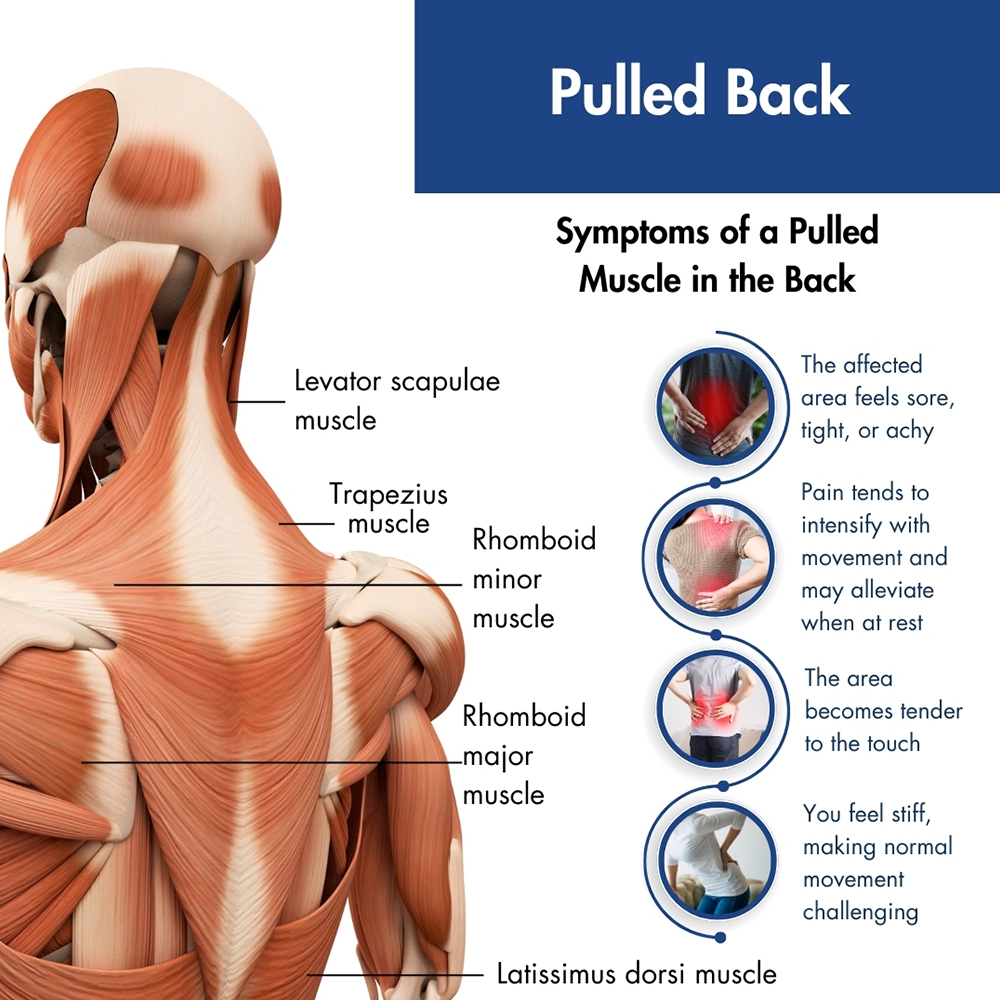We’re pleased to announce that Pain Physicians of Wisconsin is now Pro Spine Pain.
We’re pleased to announce that Pain Physicians of Wisconsin is now Pro Spine Pain.
 If you fail to receive proper treatment and guidance for a pulled back muscle, your injury can have a long-term impact on your life. Fear of re-injury may lead you to abandon activities you once enjoyed, and with decreased activity, there’s an associated risk of weight gain. While a pulled back muscle in the back is often not severe enough to warrant drastic treatment, without a definitive diagnosis and appropriate care, you may experience a decline in muscle strength, flexibility, and even bone density. Instead of attempting self-medication, consider consulting the pain management experts at Pro Spine & Pain in Wisconsin. We specialize in how to treat a pulled muscle in the back to guide you on the path to recovery.
If you fail to receive proper treatment and guidance for a pulled back muscle, your injury can have a long-term impact on your life. Fear of re-injury may lead you to abandon activities you once enjoyed, and with decreased activity, there’s an associated risk of weight gain. While a pulled back muscle in the back is often not severe enough to warrant drastic treatment, without a definitive diagnosis and appropriate care, you may experience a decline in muscle strength, flexibility, and even bone density. Instead of attempting self-medication, consider consulting the pain management experts at Pro Spine & Pain in Wisconsin. We specialize in how to treat a pulled muscle in the back to guide you on the path to recovery.
Daily activities such as walking, running, twisting, or jumping place considerable strain on your lumbar spine and the supporting muscles and soft tissues. Given the significant wear and tear your back undergoes, it’s not surprising that a pulled muscle in the lower back can affect individuals of all ages. Indeed, one of the most prevalent causes of lower back pain is a pulled muscle in the back.
A pulled back is essentially a term for a muscle strain or sprain in the back. Despite its seemingly minor nature, it can lead to symptoms like moderate to severe pain and reduced mobility. At Pro Spine & Pain with Wisconsin offices in Kenosha, Waukesha, Layton, Franklin, and Madison, you can receive convenient, effective pulled lower back muscle treatment, facilitating a quicker return to your normal daily activities.
When you suffer from a pulled muscle or muscle strain, your muscle fibers undergo stretching and tearing, leading to a range of symptoms:
Visible swelling and inflammation may also occur, and depending on the injury’s severity, muscle spasms may develop during both rest and activity. Pain can radiate to other areas, such as the lower back, resulting in decreased mobility. You might experience middle back pain, upper back pain, or neck pain, leading to muscle spasms in your neck.
Symptoms of a pulled back can emerge suddenly after an injury occurs, or they may develop gradually over time, going unnoticed initially. Overusing certain muscles through repetitive motions can take years to cause pain.
Potential causes of muscle strain, particularly in the lower back, include:
Increased risk factors for experiencing a muscle strain in the back include leading a sedentary lifestyle, poor posture, or weak abdominal muscles. Smoking and obesity also elevate the risk of pulling a muscle in your back.
Your pain management specialist can typically diagnose a muscle strain through a physical examination, a review of your medical history, and an assessment of how the injury occurred. The examination includes checking for spinal abnormalities and reduced range of motion. If there’s concern about an additional injury, such as a herniated disc or pinched nerve, additional imaging tests may be recommended.
Upon diagnosis, your pain doctor may advise a break from sports activities or jobs involving heavy lifting, otherwise it can cause serious sports injuries. Alternating ice and a heating pad to the affected area for 15 or 20 minutes several times a day helps control swelling, and over-the-counter anti-inflammatories and pain relievers like naproxen, aspirin, or ibuprofen can reduce pain. If pain persists, your doctor may prescribe muscle relaxants or prescription pain medication.
Physical therapy is often recommended as pulled-back muscle treatment to reduce inflammation, pain, and stiffness and rebuild strength and flexibility. Your physical therapist will guide you through strengthening exercises to improve and protect the soft tissues of the affected area. Massage, electrical muscle stimulation, or heat therapy may be employed to loosen tight muscles. It’s important to resume movement as much as possible within 24 hours of the onset of pain, as extended rest can prolong symptoms and impede recovery.
To avoid similar problems in the future, employ a good lifting technique using your legs rather than your back, maintain good posture to avoid excess strain on your back, and strengthen your core muscles to support your torso. An active lifestyle will also help maintain strong, flexible muscles and overall good health
If you suspect a pulled back muscle, have your injury evaluated if symptoms persist beyond a couple of days. Don’t disregard severe or worsening pain, swelling, or discoloration. Prompt evaluation is crucial, especially if the pain impedes your movement or hinders your normal daily activities.
Contact Pro Spine & Pain in Wisconsin for an expert evaluation of your pulled back muscle or any other back pain or back injury. With state-of-the-art treatment options, you can expect a swift recovery to get you back to your normal activities.

Thomas Stauss, MD, completed both his undergraduate and medical studies at the esteemed University of Wisconsin in Madison. Dr. Stauss values having access to a wide array of cutting-edge treatment options, ensuring effective relief for his patients' discomfort and a significant enhancement in their quality of life. More specifically, he specializes in utilizing implanted devices to manage chronic pain. Dr. Stauss’s primary objective is to uphold the dignity of each patient while delivering ethical and professional services.
More about Dr. Stauss